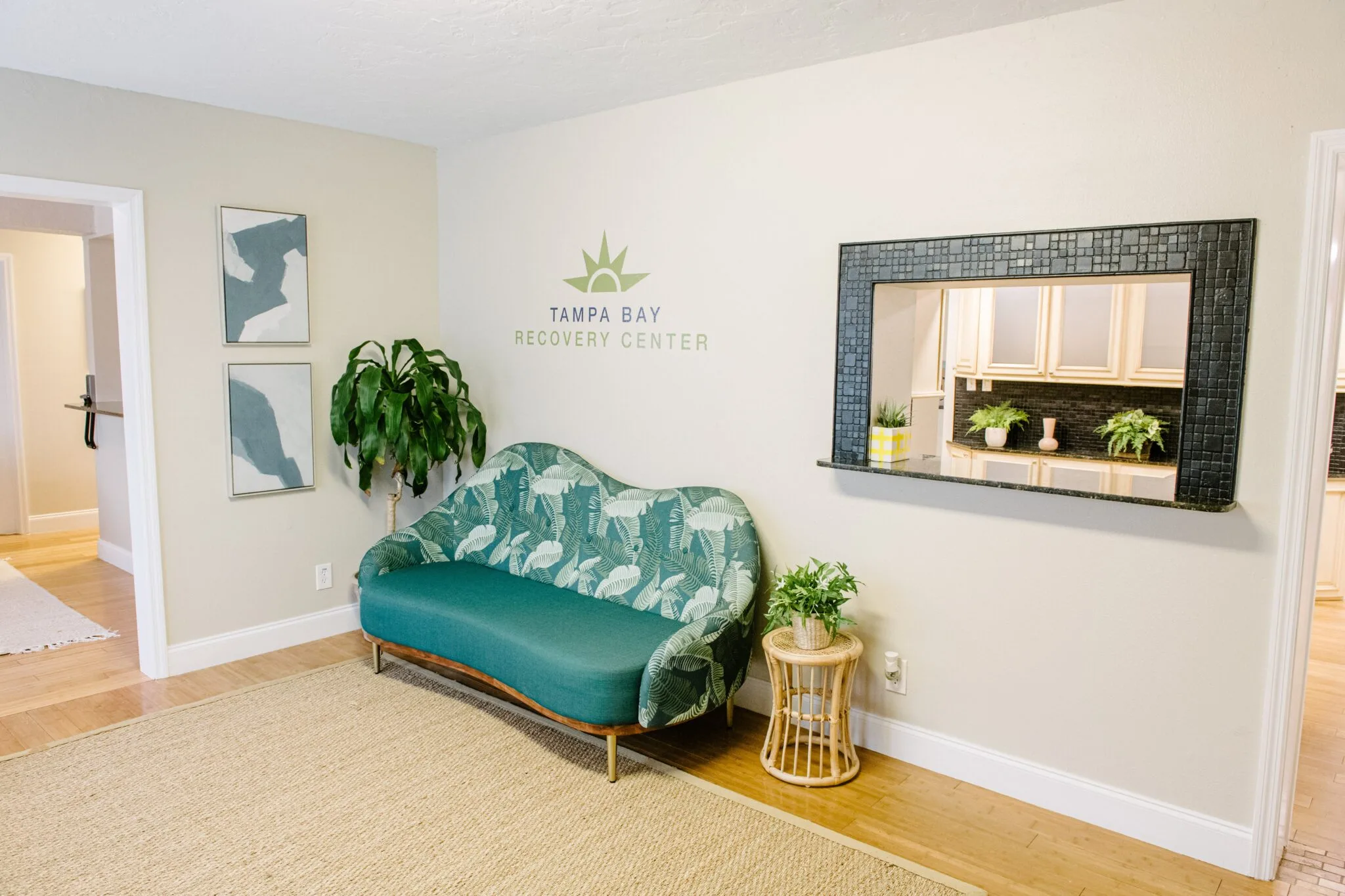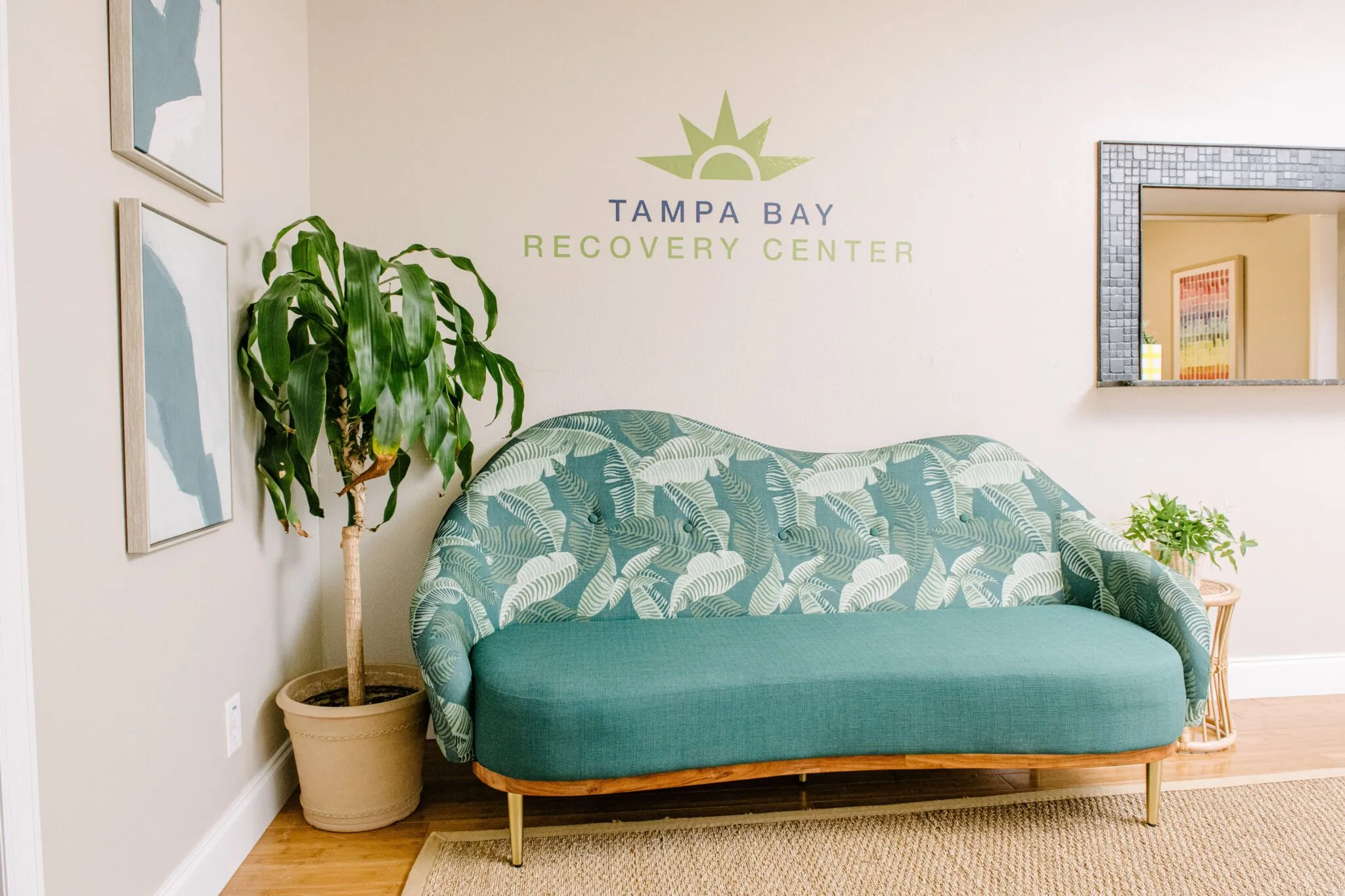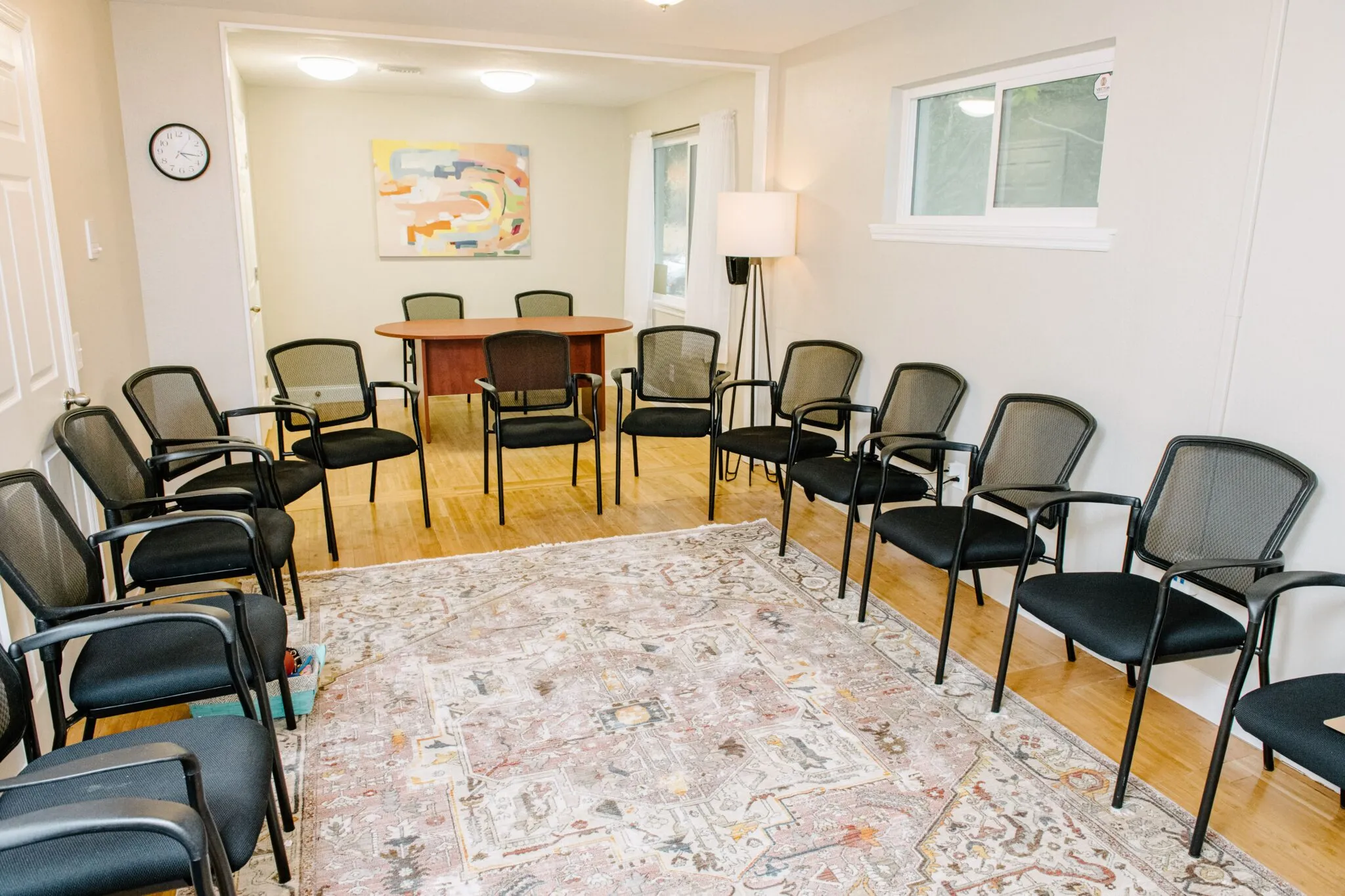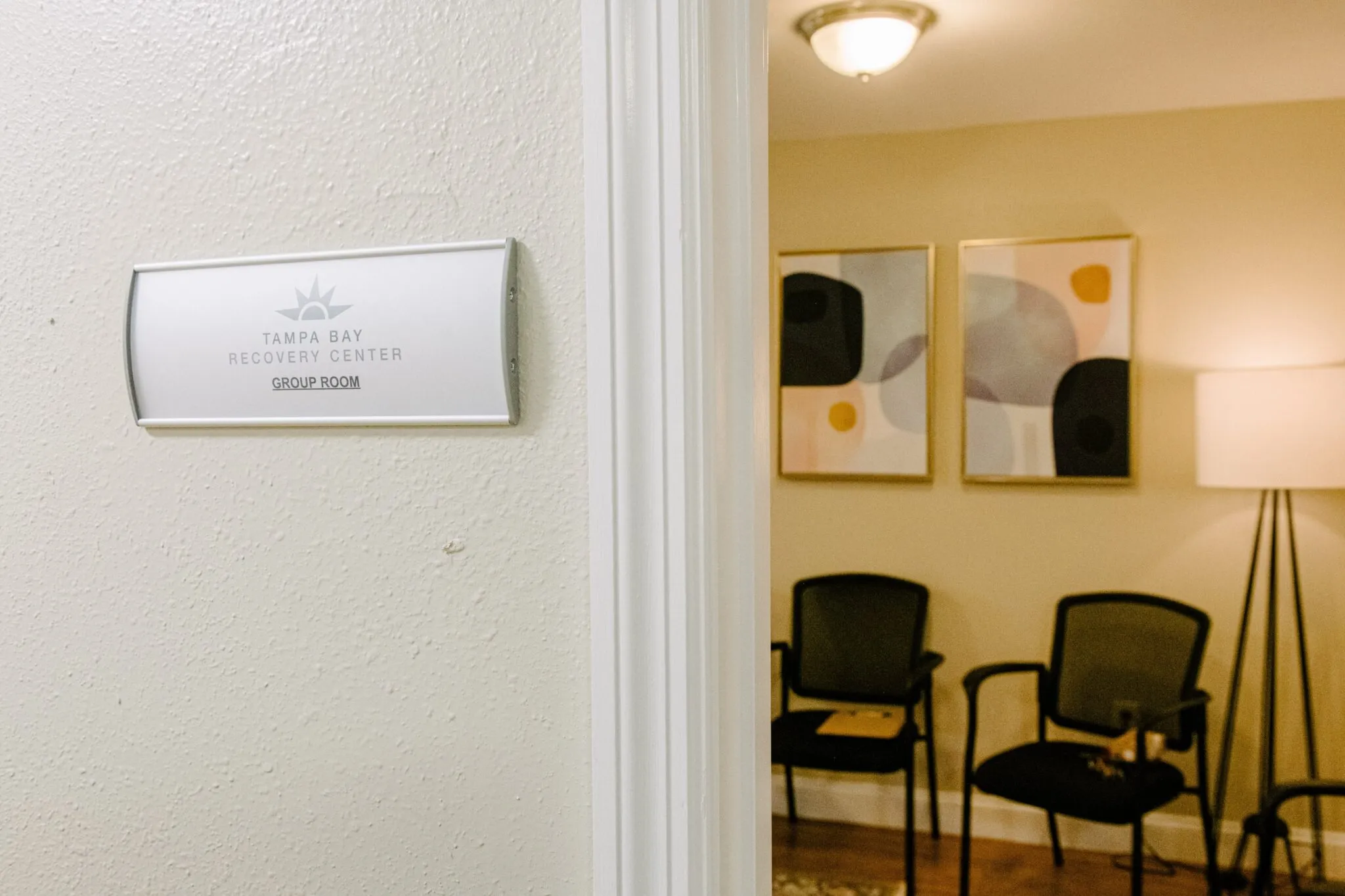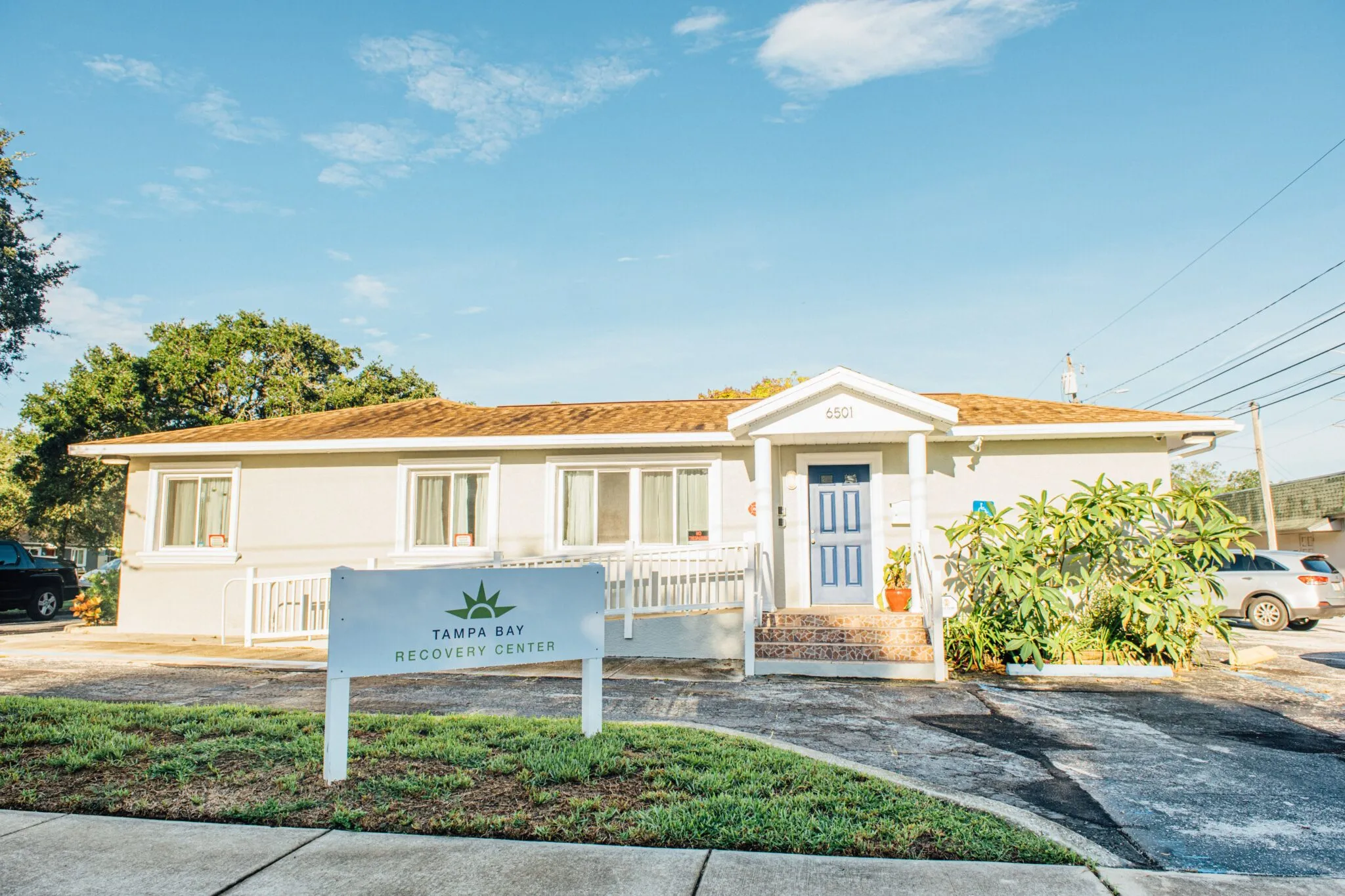Naltrexone is an FDA-approved medication for treating alcohol and opioid use disorders.
Contact Tampa Bay Recovery Center today to learn more.
Home Therapies Medication-Assisted Treatment Naltrexone
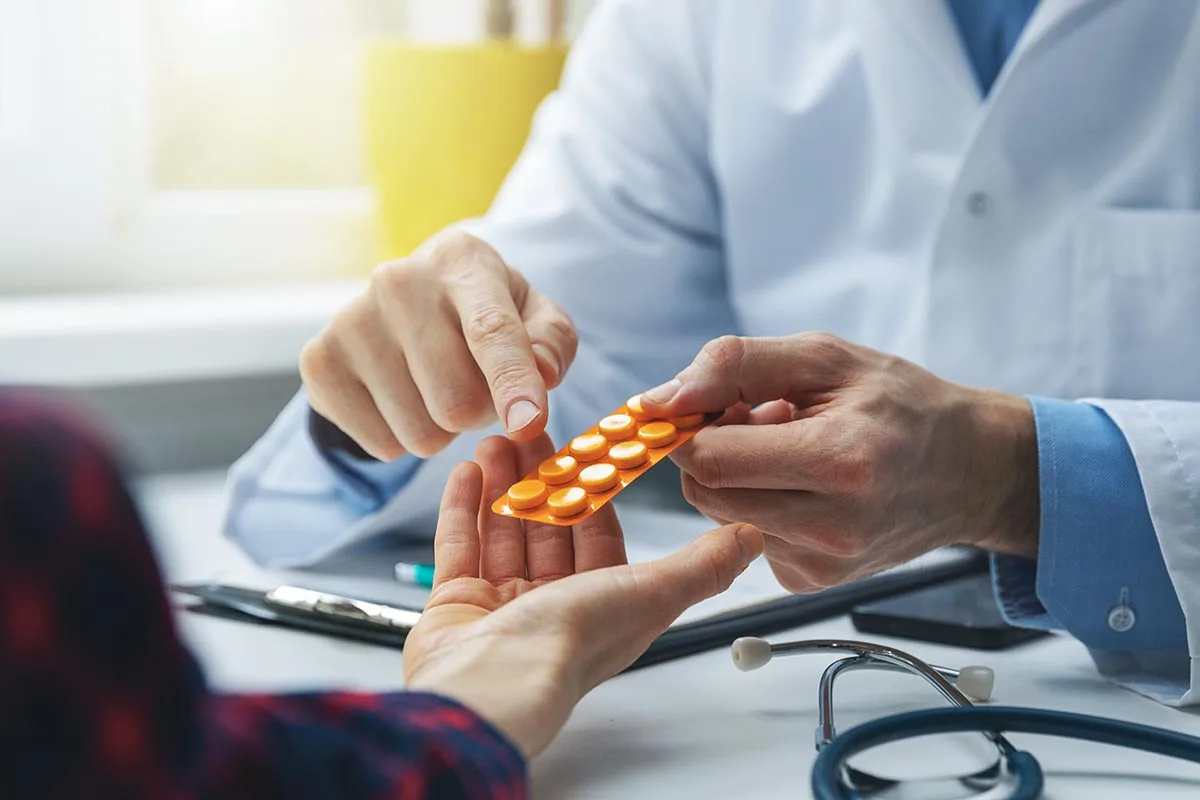
Overcoming Opioid and Alcohol Addiction with Naltrexone at Tampa Bay Recovery Center
Opioid and alcohol addiction are among the most challenging and dangerous dependencies to overcome. Fortunately, the FDA has approved several medications to assist in treatment, one of which is naltrexone. If you or a loved one is struggling with opioid or alcohol addiction, Tampa Bay Recovery Center in Tampa, Florida, offers a comprehensive outpatient treatment program that includes naltrexone as part of our Medication-Assisted Treatment (MAT) approach.
What is Naltrexone?
Naltrexone is an FDA-approved medication used to treat both opioid and alcohol use disorders. When combined with behavioral therapy, it can be an essential part of a person’s treatment plan. Naltrexone is available in two forms: an oral tablet or an injectable known as Vivitrol, offering flexibility based on individual needs.
How Does Naltrexone Work?
Naltrexone works by blocking opioid receptors in the brain, which are responsible for producing feelings of euphoria and pain relief. Opioids and alcohol can hijack these receptors, reinforcing addictive behaviors. By binding to and blocking these receptors, naltrexone stops the rewarding effects of alcohol or opioid use, which helps reduce cravings and the risk of relapse.
Naltrexone offers two main benefits:
- It helps reduce cravings during early recovery, when the risk of relapse is highest.
- If a relapse occurs, naltrexone blocks the high that typically accompanies substance use, preventing the reward system from reinforcing further use.
However, it’s important to note that large quantities of opioids or alcohol may override the effects of naltrexone, making ongoing behavioral support essential.
How Can Naltrexone Help You?
Naltrexone can assist you by reducing cravings and blocking the euphoric effects of opioids and alcohol, significantly lowering your risk of relapse. However, it is not a standalone solution. Comprehensive treatment that includes therapy, counseling, and mental health support is necessary for achieving long-term recovery.
At Tampa Bay Recovery Center, we integrate naltrexone into a broader treatment plan, ensuring that clients have the tools needed for sustainable recovery. Our team of experienced professionals is here to support your journey toward sobriety.
What to Avoid When Taking Naltrexone
While naltrexone can be a powerful tool in the fight against addiction, there are precautions to keep in mind:
- Sobriety Before Treatment: Ensure that you are free from alcohol or opioids for at least 7 to 10 days before starting naltrexone to avoid adverse interactions.
- Complete Detox First: A detox program is often recommended before taking naltrexone to manage withdrawal symptoms and ensure you start treatment in a stable condition.
- Liver Health: Avoid naltrexone if you have liver conditions, such as hepatitis, as it can exacerbate liver issues.
- Pregnancy and Breastfeeding: If you are pregnant or breastfeeding, consult your doctor before starting naltrexone.
- Medication Interactions: Inform your doctor about any other medications you are taking, particularly psychiatric drugs or other MAT medications, which may have dangerous interactions with naltrexone.
Side Effects of Naltrexone
As with any medication, naltrexone can cause side effects. These can range from mild to severe and may include:
- Nausea, vomiting, or diarrhea
- Stomach pain, constipation, or cramps
- Muscle and joint pain
- Headaches and fatigue
- Anxiety, depression, or irritability
- Changes in appetite and sleeping patterns
In rare cases, more serious side effects like confusion or worsening mental health conditions may occur. It’s important to discuss any concerning side effects with your doctor.
How Long Do the Effects of Naltrexone Last?
The duration of naltrexone’s effects depends on the method of administration. When taken orally, its effects last between 24 to 72 hours, requiring daily doses to maintain effectiveness. When administered as an extended-release injection (Vivitrol), the effects last for approximately one month, making it a convenient option for individuals who may struggle with medication management.
Alternatives to Naltrexone
While naltrexone is effective, other medications can also be part of a MAT program for those battling opioid or alcohol addiction.
For Opioid Use Disorder:
- Buprenorphine: A partial opioid agonist that reduces cravings, available as an injectable under the brand name Sublocade.
- Methadone: A long-acting opioid agonist that helps manage cravings but requires daily doses at a clinic to prevent misuse.
For Alcohol Use Disorder:
- Acamprosate: Helps the brain recover from long-term alcohol use by restoring its normal function.
- Disulfiram: Produces unpleasant side effects when alcohol is consumed, serving as a deterrent for drinking.
Ready to Overcome Addiction?
Opioid and alcohol addiction can be devastating, but recovery is possible with the right support. At Tampa Bay Recovery Center, we offer evidence-based, individualized treatment plans to help you break the cycle of addiction. Our outpatient program includes naltrexone as part of our MAT options, along with comprehensive therapy and counseling services to guide you on your path to long-term recovery.
If you or a loved one is ready to escape the grip of addiction, contact us today at (813) 733-8774 to speak with an admissions specialist. Let us help you take the first step toward a healthier, happier future.
More About Naltrexone
- What Else Does Naltrexone Treat?: In addition to opioid and alcohol use disorders, naltrexone in low doses can treat chronic pain, fibromyalgia, and immune disorders.
- What Happens If I Stop Taking Naltrexone?: Consult your doctor before stopping naltrexone to manage any potential risks of relapse.
- Is Naltrexone Addictive?: No, naltrexone is not addictive and does not cause physical dependence.
- How Can I Support a Loved One Taking Naltrexone?: Offer emotional support, encourage adherence to the treatment plan, and stay informed about the effects and benefits of naltrexone.
Start your recovery journey today with expert care at Tampa Bay Recovery Center. Contact us for more information or to verify your insurance.
Our Florida medication-assisted treatment program can be vital for people who are unable to stop using heroin, prescription painkillers, other opioids, or alcohol.
Also referred to as MAT, medication-assisted treatment is a closely studied service that has been successfully used in the United States for many decades.
Take Back Control:
Contact Us Now
Addiction and mental health disorder effects the lives of millions of Americans each year. Contact Creekside Recovery Group today to get the help you deserve.
TOUR
Tour Our Medication-Assisted Treatment Program
How Does Medication-Assisted Treatment in Florida Work?
At Tampa Bay Recovery Center, our Medication-assisted treatment in Florida addresses the physical, mental, and social aspects of addiction.
For people who have become addicted to alcohol or opioids, attempting to end their substance use without proper professional care can be extremely painful. In some cases, such as severe alcohol addiction, trying to quit without medical supervision can be dangerous or even deadly and require alcohol rehab.
People who take part in MAT for drug addiction or alcoholism receive prescription medication so they can end their substance use without developing painful withdrawal symptoms.
At our drug rehab in Tampa Bay, the medication-assisted treatment also includes therapy.
During therapy, patients can discuss the issues that may have contributed to their substance abuse, or that were negatively impacted by their struggles with addiction. Therapy sessions are safe and supportive forums where people can gain valuable information about addiction and develop relapse-prevention skills.
Common Medications Used for MAT
Buprenorphine (Suboxone)
Buprenorphine is also known by the brand name, Suboxone. Buprenorphine is a partial antagonist approved by the FDA to combat opioid addiction. The purpose of Buprenorphine is to help reduce cravings and alleviate painful withdrawal symptoms. The length of time that someone stays on Suboxone can vary and the drug is typically administered by pill for film form. Suboxone has also been proven to not only help with relapse but promote long-term recovery. At Tampa Bay Recovery Center, we administer Suboxone to our clients if they are clinically appropriate.
Naltrexone + Vivitrol
Naltrexone is the most common form of Medication-Assisted Treatment and if clinically appropriate, administered to clients for alcoholism and opiate use disorder. Naltrexone is an opioid antagonist and is utilized to block the effects of alcohol and opioids if taken while on the medication. Naltrexone is taken in a tablet form, however, there is an injectable form of this drug called Vivitrol. A Vivitrol injection is an extended release of the Naltrexone lasts for one month.
Sublocade
Sublocade is a brand name for an injectable form of Buprenorphine. Sublocade is administered subcutaneously (under the skin) as a monthly injection. The benefits of this long-acting formulation are that it can help patients maintain a consistent level of buprenorphine in their system.
Ready to Escape Addiction? Let’s get Started
Tampa Bay Recovery Center is a premier leader in the provision of addiction treatment services. If you or someone you love is in need of professional care to address a substance use disorder, reach out to us right now at (813) 733-8774 to speak with an admissions specialist who can get you started on the road to recovery.
Medication-Assisted Treatment for Alcohol
Several prescription medications have been approved for use in MAT programs for alcohol addiction. Each medication has different effects, so it’s important for MAT patients to complete thorough assessments and consult with a qualified healthcare provider to determine which medication is right for them. Medication may be used to help you safely complete the alcohol withdrawal process, diminish cravings for alcohol, or trigger the onset of painful symptoms if you drink alcohol. If you are also struggling with a co-occurring mental health disorder, other medications may be used to alleviate certain symptoms so you can participate in therapy and build a stable life in recovery.
Medication-Assisted Treatment for Opioids
Heroin, fentanyl, morphine, prescription drugs, and other opioids are highly addictive substances. Once a person has become dependent upon these drugs, they may find it virtually impossible to stop using them. The physical and psychological distress of withdrawal is one of the main reasons why people remain trapped by the chains of opioid addiction. When people get medication-assisted treatment for opioid addiction, they can receive a prescription for a medication that prevents the onset of opioid withdrawal. The medications that are used in MAT interact with the same receptors in the central nervous system that are affected by opioids. Since these medications do not cause the disorienting high that opioids do, people who take medication as directed within the context of an approved MAT program can drive, work, go to school, participate in therapy, and otherwise fully engage in a healthy and productive lifestyle.
Who is Medication-Assisted Treatment For?
Medication-assisted treatment is designed for people who need professional help to achieve recovery from addictions to heroin, prescription painkillers, other opioids, or alcohol. It may be most appropriate for those who have been prevented from ending their substance use due to the pain and potential danger of withdrawal.
The prescription medications that are incorporated into MAT at our addiction treatment facility ease the distress of withdrawal, so patients can safely stop using opioids or alcohol.
Benefits of Medication-Assisted Treatment
The following are three of the many benefits of participating in medication-assisted treatment in Florida:
- Safety: While you are receiving medication-assisted treatment at our center, you will be in a safe, supportive, and welcoming place where your well-being is our top priority.
- Comprehensive care: Our medication-assisted treatment program in Florida addresses the physical, mental, and social aspects of addiction and recovery. In addition to ensuring that you complete the withdrawal process safely and with minimal discomfort, our team will also help you make lifestyle changes that will support successful long-term recovery.
- Experienced staff: Throughout your time with us, you will work with a team of experienced professionals who truly care about you and who are committed to helping you achieve your immediate and long-term goals.
Untreated addiction can be devastating. When you choose to get medication-assisted treatment at our Florida center, you can discover your path toward the bright future you deserve.
Overcome Addiction with evidence-based, expert care.
How Long Does Someone Stay on MAT?
Medication-assisted treatment has proved to be safe and effective for both short- and long-term use. Some people remain on MAT just long enough to complete the withdrawal process, while others continue to take medication for months or years. As with all aspects of effective addiction treatment, there is no single one-size-fits-all answer that’s right for everyone. Various factors, including the effect that addiction has had on the person’s life, their risk for relapse, and the strength of their personal support network, can influence how long a person should remain in a medication-assisted treatment program for addiction.
Other Services Offered at Tampa Bay Recovery Center
In conjunction with Medication-Assisted Treatment in Florida, we offer a number of modalities that are a combination of holistic practices, experiential practice, and talk therapy. Some of these include:
Find Medication-Assisted Treament in Florida
Untreated addiction can undermine your faith in yourself and destroy your hope for the future. If you’re trapped in the downward spiral of addiction, please know that help is available and treatment works. Florida medication-assisted treatment can help you end your substance use and build a foundation for successful, long-term recovery. For answers to all your questions about MAT in Florida, learn more about our admissions process today.
CONTACT US
We Are Always Here For You
Our compassionate team is ready to assist you—contact us now for confidential support tailored to your needs!

